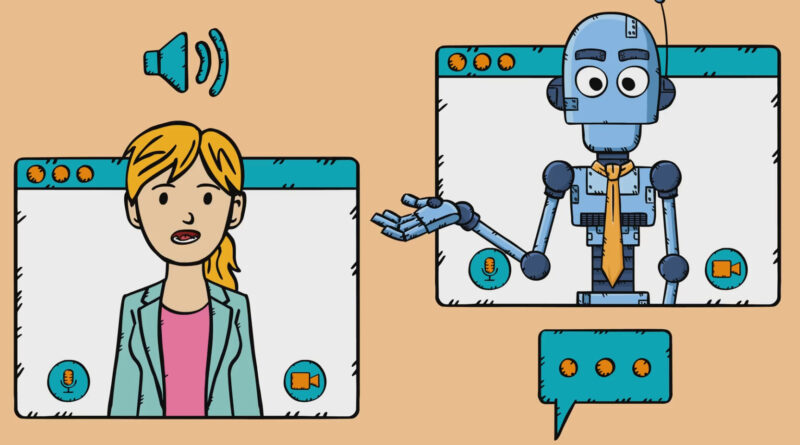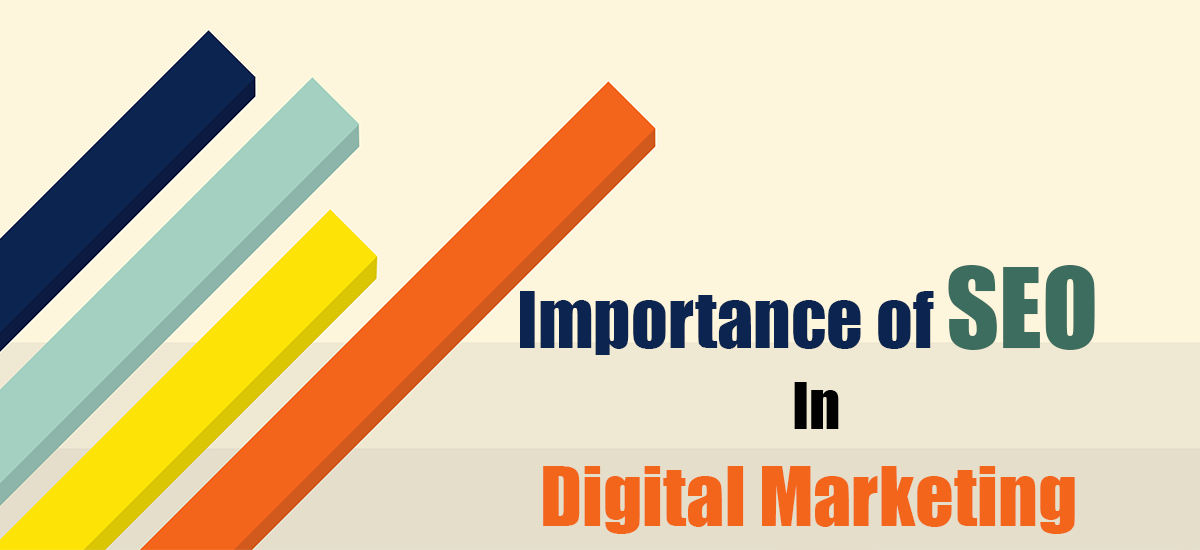Artificial Intelligence in Digital Marketing 2023
AI for Digital Marketing is revolutionizing the digital marketing landscape, offering numerous advantages:
What is Artificial Intelligence?
Artificial Intelligence (AI) refers to the development of intelligent machines capable of performing tasks that typically require human intelligence, such as learning, problem-solving, and decision-making. In the context of digital marketing, AI encompasses various technologies like machine learning, natural language processing, and computer vision to automate tasks, personalize experiences, and gain valuable insights.
1. Enhanced Targeting and Personalization:
- AI algorithms analyze vast amounts of data to personalize marketing campaigns, tailoring content, offers, and recommendations to individual user preferences.
- This data-driven approach significantly improves campaign effectiveness and increases engagement rates.
- For example, Netflix leverages AI to recommend personalized content to its users, boosting engagement and contributing to their success.
2. Automation of Repetitive Tasks:
- AI automates time-consuming tasks like ad campaign management, keyword research, and content creation.
- This frees up marketers’ valuable time to focus on strategic planning, analysis, and creativity.
- A study by McKinsey Global Institute found that AI automation can free up to 40% of a marketer’s time.
3. Improved Data Analysis and Insights:
- AI-powered analytics tools provide deeper insights into customer behavior, campaign performance, and market trends.
- These insights enable marketers to make data-driven decisions, optimize campaigns in real-time, and predict future outcomes.
- For instance, Sephora utilizes AI to analyze customer purchase histories and recommends personalized beauty products, improving customer satisfaction and loyalty.
4. Increased Customer Engagement and Experience:
- AI-powered chatbots and virtual assistants provide 24/7 customer support, answer questions, and resolve issues efficiently.
- This personalized customer service enhances brand reputation and customer satisfaction.
- Domino’s Pizza uses AI-powered chatbots to help customers place orders and track deliveries, enhancing the customer experience and driving sales.
5. Content Creation and Optimization:
- AI-powered tools can be used to generate personalized content, such as blog posts, social media updates, and email marketing campaigns.
- Additionally, AI can optimize existing content for search engines and improve website ranking.
- For example, Buzzsumo utilizes AI to analyze social media trends and suggest content ideas that are more likely to go viral.
Challenges and Considerations:
Despite its benefits, AI also presents challenges for marketers:
1. Data Privacy and Security:
- AI relies heavily on personal data, raising concerns about data privacy and security.
- Marketers must ensure they comply with data regulations and implement robust data security practices.
2. Transparency and Explainability:
- Understanding the decision-making process of AI algorithms can be challenging due to their complexity and opacity.
- Marketers need to ensure transparency in their AI-powered solutions and explain how they leverage data to avoid bias and discrimination.
3. Job displacement:
- Automation and AI could lead to job displacement in certain marketing roles.
- Marketers need to adapt their skills and focus on strategic areas where AI cannot replace human expertise.
4. The need for human oversight:
- AI tools should be used to complement human intelligence, not replace it.
- Marketers still need to provide strategic direction, exercise creativity, and make ethical decisions.
AI is rapidly transforming the digital marketing landscape, offering significant opportunities for personalization, automation, and data-driven insights. However, ethical considerations regarding data privacy, transparency, and human oversight remain critical. Digital Floats Academy encourages marketers to embrace AI’s potential while addressing its challenges responsibly to achieve sustainable success in the digital age.
Trends in Using AI for Digital Marketing: 2023-2024
AI is rapidly transforming the marketing landscape, offering new opportunities to enhance efficiency, personalize experiences, and drive growth. Here are some of the latest trends and applications across different areas of digital marketing:
1. Content Generation:
- Generative AI tools: Powerful language models like Bard are generating text-based content like product descriptions, blog posts, website copy, and even scripts. GPT-4 is expected to offer further advancements in topicality and accuracy.
- AI-powered video creation: Tools like Synthesia and HeyGen turn audio or transcripts into video, with AI-driven avatars delivering the content. This opens doors for personalized and engaging video marketing campaigns.
- Dynamic product descriptions: AI can personalize product descriptions based on individual customer profiles and preferences.
2. Customer Experience:
- Conversational AI chatbots: Chatbots are becoming increasingly sophisticated, handling customer inquiries 24/7, answering questions, offering personalized recommendations, and resolving issues.
- AI-powered customer service: By analyzing customer data, AI can anticipate needs and proactively offer support, leading to improved customer satisfaction and retention.
- Hyper-personalization: AI tailors customer journeys and interactions based on individual preferences, behavior, and purchase history, creating a unique and engaging experience.
3. Automation:
- Marketing campaign management: AI automates tasks like ad campaign creation, budget allocation, bidding strategies, and performance optimization, freeing up marketers’ time for strategic planning.
- Social media management: AI-powered tools schedule posts, respond to comments, monitor brand mentions, and manage social media campaigns across multiple platforms.
- Email marketing automation: AI personalizes email content based on individual customer profiles, schedules sends for optimal engagement, and automates follow-up sequences.
4. Personalization:
- Product recommendations: AI analyzes customer data to recommend relevant products based on individual preferences, purchase history, and browsing behavior.
- Personalized offers and discounts: AI personalizes offers and discounts in real-time, increasing the likelihood of customer conversion.
- Dynamic website content: AI tailors website content to individual visitors, showcasing relevant products, offers, and information based on their interests.
5. Analytics:
- Predictive analytics: AI forecasts future customer behavior and trends, enabling marketers to proactively engage with customers and optimize marketing strategies.
- Attribution modeling: AI identifies the true impact of different marketing channels on conversions, allowing for more effective budget allocation.
- Sentiment analysis: AI analyzes customer reviews and social media conversations to understand brand sentiment and identify areas for improvement.
Additional Trends:
- AI-powered SEO: AI optimizes website content and metadata for better search engine ranking, increasing organic traffic.
- AI-powered influencer marketing: AI identifies and collaborates with relevant influencers to reach target audiences more effectively.
- Privacy-preserving AI: As data privacy concerns grow, AI tools are being developed to ensure secure and ethical use of customer data.
Challenges and Considerations:
- Data security and privacy: Ensuring responsible and ethical use of customer data is crucial.
- AI explainability and transparency: Understanding how AI algorithms make decisions is essential for building trust and accountability.
- Human oversight and control: While AI automates tasks, human expertise is still crucial for strategic decision-making and creative thinking.
Overall, AI is revolutionizing digital marketing, offering powerful tools for personalization, automation, and data-driven insights. By understanding these trends and leveraging AI responsibly, companies can create more engaging customer experiences, drive growth, and stay ahead of the competition.
Using AI in Digital Marketing: A Comprehensive Overview
Artificial Intelligence (AI) is revolutionizing digital marketing by automating tasks, personalizing experiences, and delivering data-driven insights. This guide will provide a comprehensive overview of how to leverage AI in your digital marketing strategy, including best practices, strategies, and required skills.

Benefits of AI in Digital Marketing
- Increased Efficiency: AI automates time-consuming tasks like ad creation, content scheduling, and campaign management, freeing up your time for strategic planning and analysis.
- Enhanced Personalization: AI analyzes customer data to deliver personalized experiences across various touchpoints, leading to increased engagement and conversions.
- Improved Targeting: AI algorithms pinpoint the right audience for your campaigns, ensuring you reach the most relevant individuals for your offerings.
- Deeper Insights: AI analyzes vast amounts of data to provide valuable insights into customer behavior and campaign performance, enabling you to make data-driven decisions.
Optimal Approaches for Integrating AI into Digital Marketing
- Start Small: Begin by identifying key areas where AI can optimize your existing workflow. This could be automating repetitive tasks or personalizing email campaigns.
- Emphasize the Importance of Data Quality: The effectiveness of AI relies heavily on the quality of the training data it receives. Ensure your data is accurate, complete, and organized to maximize AI effectiveness.
- Set Clear Goals: Define specific objectives for your AI-powered initiatives to measure success and track progress.
- Integrate with Existing Tools: Look for AI solutions that integrate seamlessly with your existing marketing tools and platforms for a smooth workflow.
- Embrace Transparency: Be transparent about your use of AI to build trust with your audience. Explain how AI benefits them and address any concerns they might have.
Key Strategies for Different Marketing Functions
- Content Marketing: AI can generate personalized content recommendations, analyze data to identify trending topics, and create targeted content pieces.
- Social Media Marketing: AI can analyze social media data to identify influencers, schedule posts at optimal times, and respond to customer inquiries.
- Search Engine Optimization (SEO): AI can analyze competitor websites, identify relevant keywords, and optimize website content for search engines.
- Paid Advertising: AI can optimize ad targeting, personalize ad copy, and set bids for maximum return on investment (ROI).
- Email Marketing: AI can segment your email list, personalize email content, and predict customer churn to optimize your email campaigns.
Skills Required for Using AI in Digital Marketing
- Data Analysis: Understanding how to analyze and interpret data is crucial for using AI effectively.
- Technical Skills: Familiarity with AI tools and platforms is essential for implementing and managing AI-powered initiatives.
- Creativity: AI can be a powerful tool for creative endeavors, but it’s important to know how to use it to drive innovative and engaging marketing campaigns.
- Critical Thinking: AI insights should be carefully evaluated before making decisions. Develop critical thinking skills to analyze AI output and make informed decisions.
AI is transforming the digital marketing landscape, offering unprecedented opportunities for personalized experiences, data-driven decision-making, and campaign optimization. By understanding the benefits, best practices, and required skills, you can leverage AI to take your digital marketing efforts to the next level. Remember to start small, focus on data quality, and integrate AI with your existing marketing strategy for optimal results.
Impact of AI on Digital Marketing Jobs in 2023
Artificial Intelligence (AI) is transforming the digital marketing landscape at an unprecedented pace, impacting the roles and responsibilities of professionals in the field. While AI automates many repetitive tasks, it also creates new opportunities for human expertise. Here’s an analysis of the changing landscape:
Effects on Roles and Responsibilities:
- Automation of Routine Tasks: AI-powered tools automate tasks like data analysis, A/B testing, and email campaign optimization. This frees up marketers to focus on strategy, creativity, and high-level analysis.
- Personalization and Customer Insights: AI enables deep personalization by analyzing vast amounts of data. This allows for targeted content, improved engagement, and better customer experiences. Chatbots and recommendation engines are examples of this.
- Predictive Analytics: AI predicts future outcomes based on historical data, allowing for proactive marketing strategies and resource allocation.
- Content Creation: AI can generate various content formats, including articles, reports, and even videos. This impacts content creators but also allows them to focus on strategy and high-quality content.
Adapting and Thriving in the AI Era:
While AI may replace some tasks, it also creates new opportunities. Here’s how digital marketers can adapt:
Skills and Competencies:
- Data Analysis and Interpretation: Understanding AI-generated insights and translating them into actionable strategies is crucial.
- Critical Thinking and Problem-Solving: AI can identify patterns and trends, but human expertise is needed to analyze them critically and make informed decisions.
- Creativity and Innovation: As AI automates basic tasks, marketers need to focus on creative campaigns, storytelling, and innovative approaches.
- Strategic Thinking: Developing a holistic view of marketing objectives and integrating AI tools effectively requires strategic thinking.
- Communication and Collaboration: Strong communication skills are essential for collaboration with AI developers and explaining complex concepts to stakeholders.
- Adaptability and Lifelong Learning: The digital marketing landscape is constantly evolving, so continuous learning and adaptation are key to success.
Specific Roles:
- Social Media Managers: Focus on strategy, community building, and content creation that resonates with the target audience. AI tools can assist with scheduling and analysis.
- Data Analysts: Learn to interpret AI-generated insights and translate them into actionable strategies. Develop critical thinking and problem-solving skills to analyze data effectively.
- Content Creators: Focus on high-quality, unique content that resonates with the audience. Leverage AI tools for tasks like content generation and optimization.
- Programmatic Advertising: Develop expertise in crafting highly targeted ad strategies and interpreting AI-generated campaign optimization suggestions.
Overall, while AI presents challenges, it also opens up new possibilities for digital marketers. By focusing on skills like critical thinking, creativity, and strategic thinking, and embracing lifelong learning, digital marketers can thrive in the AI era and contribute to the success of their organizations.
The capabilities of AI and data analytics in enhancing digital advertising.
The digital advertising landscape is undergoing a significant transformation, driven by the increasing power of AI and data analytics. These cutting-edge technologies are enabling marketers to achieve unprecedented levels of effectiveness and efficiency in their campaigns.
Here’s how AI and data analytics can help marketers optimize their digital advertising campaigns:
1. Targeting the Right Audience:
- AI-powered audience segmentation: AI algorithms can analyze vast amounts of data to identify patterns and insights that help marketers segment their audience into distinct groups based on demographics, interests, behavior, and other relevant factors. This enables them to deliver highly targeted messages that resonate with specific segments, leading to increased engagement and conversion rates.
- Predictive modeling: AI can predict individuals’ likelihood to convert into customers, allowing marketers to focus their advertising efforts on the most promising prospects. This can significantly improve campaign ROI by reducing wasted ad spend on irrelevant audiences.
2. Delivering the Right Message:
- Dynamic creative optimization: AI can automatically personalize ad creatives based on individual user data, such as browsing history and purchase habits. This ensures that each user sees the most relevant and compelling ad, maximizing the chances of conversion.
- Chatbots and conversational AI: AI-powered chatbots can engage with potential customers in real-time, answer their questions, and provide personalized recommendations. This can not only improve customer service but also lead to increased sales and conversions.
3. Measuring the Right Outcomes:
- Attribution modeling: AI can help marketers understand the complex customer journey and accurately attribute conversions to the various touchpoints that contributed to them. This allows them to optimize their ad spend across different channels and platforms, ensuring that they are investing in the most effective activities.
- Real-time analytics: AI-powered analytics dashboards provide marketers with real-time insights into campaign performance, enabling them to make data-driven decisions and optimize their campaigns on the fly. This allows them to react quickly to changes in the market and maximize campaign outcomes.
Additionally, AI and data analytics can help marketers:
- Reduce ad fatigue: AI can help marketers optimize ad frequency and delivery schedules to ensure that ads are shown to the right people at the right time, preventing ad fatigue and maximizing engagement.
- Combat ad fraud: AI can detect and prevent fraudulent activity in digital advertising campaigns, protecting valuable advertising budgets and ensuring accurate campaign measurement.
- Personalize the customer experience: AI can personalize the entire customer journey, from initial awareness to purchase and beyond, fostering deeper brand loyalty and customer satisfaction.
Here are some examples of successful applications of AI and data analytics in digital advertising:
- Netflix: Netflix uses AI to personalize its recommendations to each user, resulting in higher engagement and retention rates.
- Amazon: Amazon uses AI to power its product recommendations and dynamic ad placements, driving increased sales and conversions.
- Airbnb: Airbnb uses AI to personalize its search results and suggest relevant listings to travelers, leading to higher booking rates.
Automation:
- Chatbots: Virtual assistants like Sephora’s shopping assistant or Starbucks’ AI barista service provide 24/7 customer support and handle simple tasks, freeing up human employees for more complex interactions.
- Email marketing: AI can personalize emails, segment audiences, and automate email campaigns based on customer data and behavior.
- Social media marketing: AI can manage social media accounts by scheduling posts, responding to comments, and analyzing data to optimize campaigns.
Content Creation:
- AI writing tools: Platforms like Jarvis and ShortlyAI assist in generating various content formats, including blog posts, social media captions, and even scripts.
- Image and video generation: AI can create custom images and videos tailored to specific audiences and campaigns, reducing production costs and time.
- SEO optimization: Tools like Surfer SEO utilize AI to analyze content and suggest improvements for search engine optimization.
Advertising:
- Targeted advertising: AI analyzes user data to deliver personalized ads across various platforms, increasing engagement and conversion rates.
- Dynamic creative optimization: AI automatically generates and adjusts ad creatives based on audience data and performance, leading to more effective advertising campaigns.
- Predictive analytics: AI can predict customer behavior and preferences, allowing marketers to develop targeted campaigns and optimize their marketing spend.
Here are some additional examples:
- Lowe’s: Uses AI-powered personal shopping assistants to help customers find products and navigate their stores.
- The Economist: Uses AI to personalize ad content based on reader interests and demographics.
- ClickUp: Leverages AI for project management, utilizing natural language processing and machine learning to optimize workflow.
- Shopify: Integrates AI into its email marketing platform, providing personalized recommendations and automated campaigns.
These examples provide just a glimpse of the various ways AI is currently employed in the field of digital marketing.As AI technology continues to evolve, we can expect even more innovative and powerful applications to emerge in the future.
However, it’s important to note that AI and data analytics are not a silver bullet. To achieve success, marketers need to have a solid understanding of their target audience, a clear campaign strategy, and the right tools and expertise to leverage these technologies effectively.
In conclusion, AI and data analytics hold immense potential for revolutionizing digital advertising. By leveraging these technologies, marketers can achieve greater precision, personalization, and effectiveness in their campaigns, ultimately driving better outcomes for their businesses.




